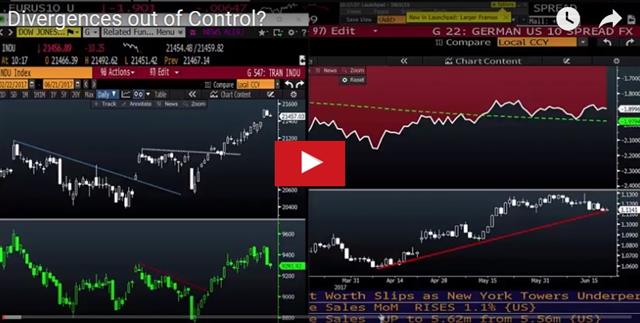Oil is working its way back into the central banking and economic equation with prices now down 19% since the May 25 OPEC meeting. GBP was the top performer Wednesday while CAD lagged. The RBNZ held rates at 1.75%, as expected. A new NZD Premium trade has been issued in addition to the 7 existing trades.
Especially worrisome about the $1.00 fall in WTI on Wednesday to $42.50 was how it got there. The news was constructive and technical support was in place, yet crude hit the lowest since August.
First, OPEC tried a bit of jawboning. Iran's oil minister Zanganeh said consultations were ongoing about a further production cut. That comment barely had a positive effect on prices. Second, the US inventory report was mildly bullish as oil inventories fell 2451K compared to 1200K expected. Initially, WTI climbed more than 50-cents on the headlines but the spike was erased in an hour and then crude prices stated to swoon.
Finally, WTI easily slid below the intraday lows, yesterday's lows and the important November bottom with barely a sign of buyers. The low on the day was $42.05 compared to $52 on the day of the OPEC meeting.
The combination of those factors made it an even worse day for oil than it seemed. It could also make for some bad days for central bank hawks. The drop in crude is deflationary and will undercut hopes for a return to 2% inflation any time soon. Yes, it's temporary but the optics of hiking rates with 1% headline inflation is a major turn off for all global central bankers.
What's more, is the risk of economic impacts. A prime potential victim is Canada and the timing couldn't be worse for the BOC as they've just shifted to a hawkish stance and declared that energy worries are behind the economy. A reversal in position would send USD/CAD sharply higher.
The US isn't immune either. Another round of layoffs in the shale industry would come at a delicate time and worries about corporate debt could re-emerge.To be sure, those factors aren't yet in play but if oil falls below $40, they will come to the fore.
In early Asia-Pacific trade, the New Zealand dollar jumped after the RBNZ said the growth outlook remained positive. They pledged to continue with accommodative policy and added some anti-NZD jawboning but it wasn't effective as NZD/USD rose 60 pips initially to 0.7260.

